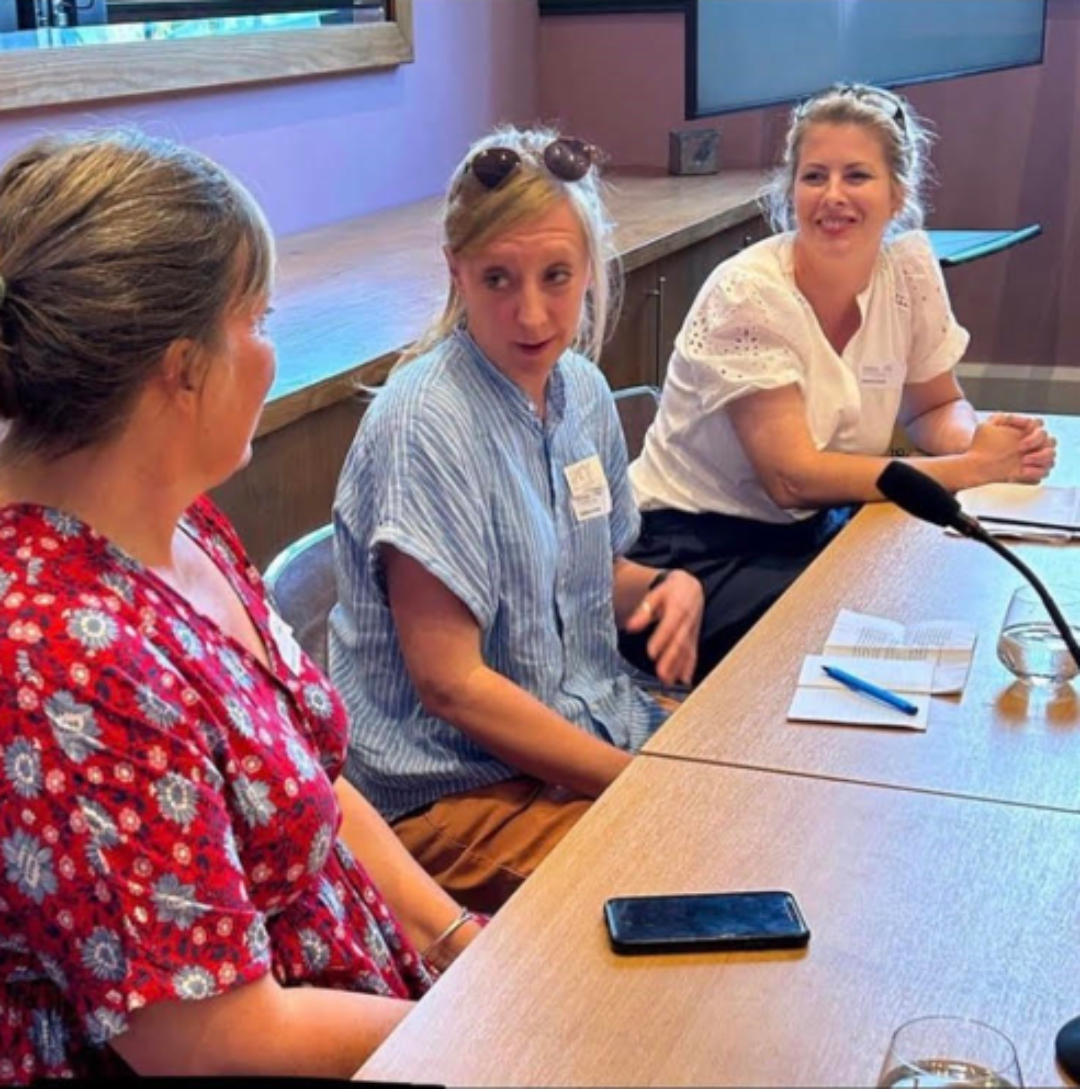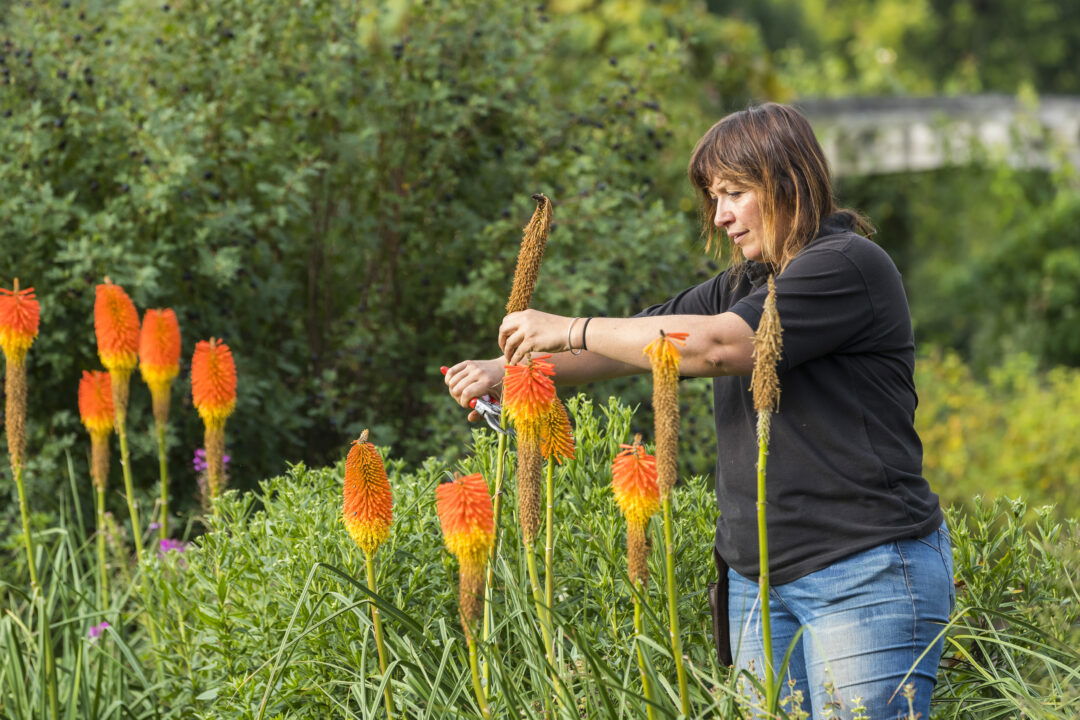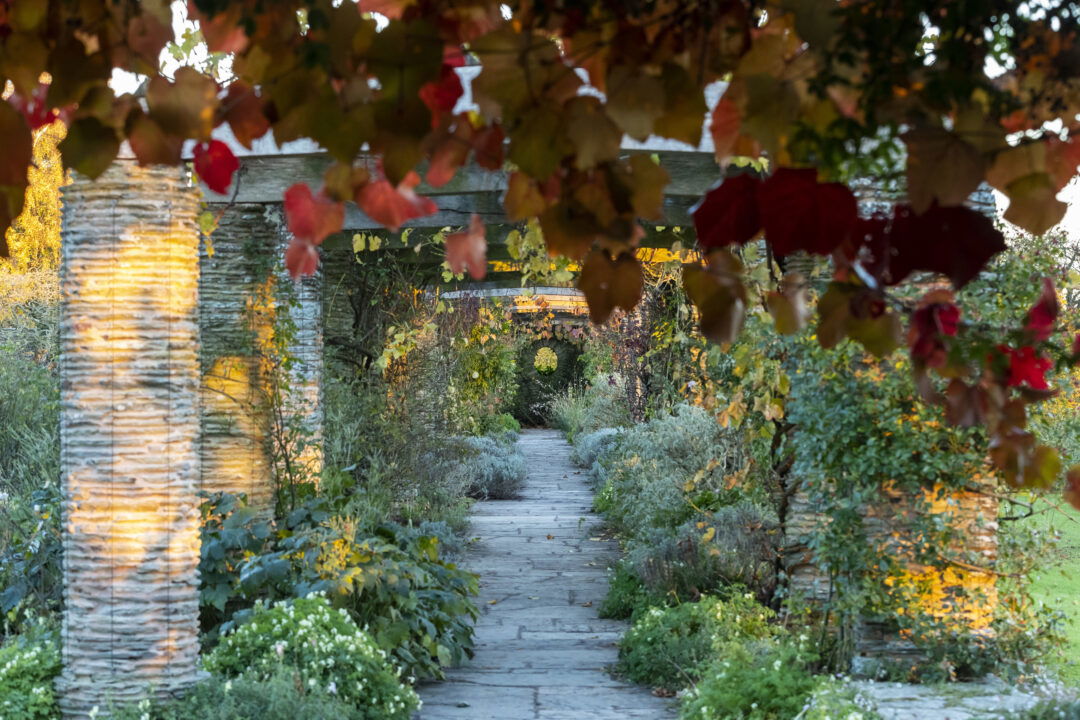Recently I was asked to be part of a round table discussion as part of a two day conference at Chatsworth run by the Garden Masterclass.
The round table was made up of three female head gardeners. The other two were Katy Merrington from the Hepworth Gallery in Wakefield and Lizzie Balmforth from a private estate called Mount St John near Thirsk.
We discussed how varied our roles were even though we had the same job title. Katy and I both work for a charity whereas the estate that Lizzie works on is under private ownership. This meant that our financial restraints were very different.
Katy gardens one acre of land linked to a modernist looking gallery. The garden was designed by Tom Stuart Smith. The garden has no walls, no fences and no gates - it really is accessible to everyone at any time. As you can imagine this comes with its own set of challenges especially in an urban area! Katy is the only employed gardener at the Hepworth and runs a team of volunteers to help her. It might only be one acre but she is part of the engagement of the gallery and it’s all down to her.
Lizzie's job is very different. She runs teams of gardeners and contractors. Her estate comprises a main house and gardens as well as a wider landscape with estate cottages with gardens. She manages a lot of new projects and works for a progressive thinking family so there is always something new to build. She too manages a garden designed by Tom Stuart Smith.
Same job titles but very varied scales of work.
I was asking both of them how much input the designer now has in their garden and if they feel obliged to follow his design rigorously. They both have a retainer with Tom Stuart Smith so that he can advise and they both stick to his plan. I commented that I had a similar arrangement with Bampfylde and Jekyll except that I was following plans from people who had passed! We weren’t sure which was more ridiculous!
The three of us had only met once before on a zoom call and we instantly struck up a friendship. All of us work for independents so we don’t have the support or opportunity of speaking to other head gardeners very often, like perhaps you would if you worked for the National Trust or the RHS. That’s why it was so nice to make our own ‘gang’.
We discussed our journeys into horticulture, Lizzie and I were both career changers who started out in apprenticeships with the National Trust. We talked about the early days of often being the lone woman in the team and feeling like you really had to physically prove yourself and not be the weaker sex. We had to work hard to be let in. I joined an all male team when I arrived at Hestercombe and it definitely took a while to break through some of the gender barriers! We had all experienced people asking us to ‘get the boss’, asking our male volunteers if they were the head gardener, having people/ employers wonder if a woman could actually physically do the role as well as a man. Thankfully this is slowly starting to change. We discussed how great it is that there are more women in horticulture today and that it is open to females but we also acknowledged a worry that many of these were career changers coming in later and many only able to take gardening jobs because they had financially supportive partners. Gardening is not well paid, this puts many young people off of the career path, but especially young men. Our fear was that it could start to be viewed as a lower grade job for women.
We talked about how to involve and encourage younger people into horticulture and how necessary it was that they had some formative links to nature that would stick with them into adulthood. We felt that if they were imprinted with that basic relationship with nature from the start that they would reignite that feeling in later life. We were scared of the thought of children not growing up with access to the outdoors and certainly not having the freedom to run wild in it as we had. We also discussed how to encourage diversity within our roles, horticulture still is mainly made up of middle class white people, and we were keen to open it to all and drop the snobbery that often comes with it.
The three of us are full of passion and enthusiasm for our jobs. We came into horticulture through a love of plants and being outside and sometimes we now have to juggle that bit with all the rest. It can be a challenging role- understanding and nurturing plants is actually just one small part of it. In fact for years I thought my role was to manage the gardens, but in reality, part of my job is to manage the people to manage the garden. So the rest of the time we are managing teams, teaching students, managing visitor expectations, carrying out health and safety essentials, managing volunteers, working alongside events and catering teams, running tours and talks, project managing, first aid, writing articles, mitigating climate change, keeping up to date with the industry, running budgets, fundraising, liaising, promoting charities, meeting and working with artists (me and Katy) , managing contractors, most of us had carried out some kind of HR role.... and it goes on… We all felt the hardest part was juggling it and we all agreed that we constantly felt guilty for not engaging fully in each bit. There just aren't enough hours in the day. We didn’t feel that we spent enough time developing staff and supporting volunteers but if we’re doing that then we weren’t doing the research, the designing, the paperwork- basically we all had imposter syndrome!
Definitely at Hestercombe every day is different and luckily I like the variation. You just have to make it work for you and take ownership. It was an absolute joy for us to sit down together and discuss the role. We all enjoyed the support we could give each other and have carried on the conversation since. Our audience was made up of garden owners, head gardeners and gardeners, landscape architects, garden designers so it was useful to start the conversation with them too.
I came back from Chatsworth energised, inspired and more importantly buzzing from the new friendships I had made with Lizzie and Katy.
We will keep talking, we will keep championing horticulture but we also look forward to challenging it too. Horticulture is such an important science and art form and is so necessary for the future of humans and the planet going forward. It makes me proud to be part of this ever evolving career.


